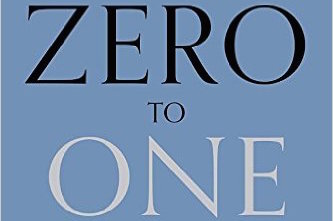HOW TO LAUNCH A TECH STARTUP
Part 1: Is This A Billion Dollar Idea?
So you’ve got a great idea for a startup, and you’re already fantasizing about all the awesome things you’re going to do with your first billion. That’s great! You’ve come to the right place. This series, “How to Launch a Tech Startup in 2016,” will guide you through the process of developing the exciting, awesome idea in your head into a real, profitable business. But let’s not get ahead of ourselves! Before we get into the details of building your business, let’s take a moment to consider whether this particular idea is even going to work out in the first place.
While a talented entrepreneur can take a mediocre idea and turn it into a successful business, and unskillful entrepreneurs often run great ideas into the ground, it’s generally advisable to start with a solid idea. And of course you’re reading this right now, thinking “OK this doesn’t apply to me, my idea is unbelievably amazing, it’s going to change the world and create a utopian society that will thrive for trillions of years, maybe I should just skip to the next article.” Indeed, many failed entrepreneurs think the same way about their own ideas. We humans have a tendency to get overconfident about our own beliefs. We think we know. The truth is, while your idea might sound great to you, right now, it probably won’t make you any money if the market doesn’t appreciate it as much as you do. We must therefore step back from our subjective enthusiasm about our own ideas, and consider objectively whether this particular idea is practical, in terms of bringing it to market and creating a successful company around it. If it is, great! Forge on ahead, armed with a real sense of earned confidence. If not, great! At least you figured it out before spending all of your time and money trying to develop an untenable idea.
Peter Thiel, co-founder of PayPal & Palantir, and the first outside investor in Facebook, wrote a book about startups called Zero to One. In it, he identified seven crucial questions to ask yourself about your startup idea before you commit to actually making it happen. Take a moment to try to answer these questions.
- The Engineering Question: Can you create breakthrough technology instead of incremental improvements? While you may be able to build a successful business by applying the same old technology in a slightly better way, Peter Thiel (as an investor) notes that it’s a bad bet. He would rather invest his time and money in a startup that has created a new technology that provides a 10x improvement over what was previously available, rather than betting on a company that only provides a small improvement over what was previously available.
- The Timing Question: Is now the right time to start your particular business? This is a hard one to really know beforehand, but Thiel does provide some interesting insights. While most people think they need to be the “first to market,” Thiel suggests that it’s far more important to be last than first. Google, for example, was certainly not the first search engine to dominate internet search traffic… but it certainly is the last (at least at this point, at the end of 2015), and its shareholders intend to keep it that way.
- The Monopoly Question: Are you starting with a big share of a small market? While many people intuitively assume that it’s best to dive into a large market (because 1% of a trillion is ten… BILLION… DOLLARS!!!), Thiel points out that large markets are also subject to extremely high competition pressures, which tend to force companies to struggle to survive on small profit margins. This is not a good position from which to be able to take risks, innovate, and change the world. Rather, Thiel suggests that it’s better to monopolize a small market, where, free of competition pressures and with high profit margins, you’ll actually have the luxury to take some risks and come up with really innovative new ideas. Ideally, Thiel suggests that it’s best to monopolize a small market in a way that you can expand to a larger market when the time is right.
- The People Question: Do you have the right team? This one’s pretty simple. If you want to build something extraordinary, you need a team of people with the skills to get it done. Do you have the skills to do it yourself? If not, how will you find the people you need? How will you convince them to work with you, instead of developing their own ideas, or working with people who pay them six (or seven, or eight) figure salaries?
- The Distribution Question: Do you have a way to not just create but deliver your product? This is generally an easier question for software/app/web-based companies than it is for companies that produce physical products; the internet is an amazingly efficient distribution network for digital products. Still, though, simply putting an app in the app store won’t do much unless people actually see it. How will you get your product or service in front of the eyes of your target audience?
- The Durability Question: Will your market position be defensible 10 and 20 years into the future? The answer to this question tends to flow from Question #1 (The Engineering Question). If you’ve created new technology, it will be hard for people to compete with you. If you’ve just done something that a dozen others can copy (and improve upon), you’ll be in for a long and bumpy road. Moreover, it never hurts to look into the future and ask yourself: Where is technology headed? Will the world still even need my product or service in 20 years?
- The Secret Question: Have you identified a unique opportunity that others don’t see? Thiel asks, in Zero to One, “What important truth do very few people agree with you on?” By answering this question, you’ll find the secrets that you’ve figured out, that the rest of the world hasn’t really figured out yet. These “secret” ideas can give you a major advantage, in that you have the opportunity to act on them while others cannot.
A real billion dollar idea will generally generate “yes” answers to all seven questions. If you answer “yes” to at least five of them, you’re probably in good enough shape to move forward and create a moderately successful business. If you’re prone to optimistically answering “yes, yes, yes” to all of the questions out of enthusiasm for your own idea, it might be good to discuss these questions with a neutral observer; try to convince him (or her) that the answers to these questions should be “yes.” This may be harder to do than it is to convince yourself. Finally, if you’re really serious about creating the next big tech startup, and you want to get more into depth about these questions (along with many other important insights), read Zero to One.
Of course, you need more than just a billion dollar idea to launch a successful startup; you need to be a great founder as well. Many people seem to be possessed of the notion that all you need in order to create a successful tech startup is to have a great idea for an app or a website or something of that kind. Unfortunately for those self-styled “idea people,” this is very far from the truth. In today’s age of information overload, great ideas (and great idea people) are available in overabundance. Execution — the thousands upon thousands of hours of hard work, struggle, talent, and determination that great entrepreneurs put into building their startups — is what separates a whimsical daydream from a billion dollar business. If you think you can launch a startup with no useful skills other than being an “idea person,” you might do well to ask yourself: why should a computer science genius capable of creating the next generation machine learning camera security system choose to work with you?
Check back next week for Part 2 of this “How to Launch a Tech Startup in 2016” series! This week you took an objective look at your specific ideas and figured out whether or not they’re likely to develop into successful businesses. Next week, before we move on to the actual business of building your business, we’ll examine another important question: Do I Have What It Takes to Launch a Successful Startup?






